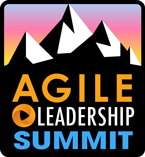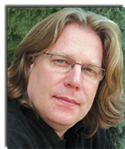Agile Leadership Summit
Agile Leadership Summit—Leading Agile Culture Change
Thursday, June 11 • 5:30pm–7:30pm and Friday, June 12 • 8:30am–3:30pm
| Leaders need to foster continuous learning and improvement or sustained agility. The trick is introducing change in a way that is effective—not invasive—and lasting. If this were easy, it would not be called leading. So, where do you start? What do you do? Participants of the Agile Leadership Summit learn from and work with experienced agile leaders who have led lasting change and produced a thriving agile culture. You’ll learn ways to foster an environment of innovation that results in great products and systems from a variety of leadership perspectives: user-centered thinking, product-centric process, reviews and evaluations, and more. David Hussman, who works with leadership groups to foster innovation, is the program chair and your facilitator for the Agile Leadership Summit. David guides participants, working in small groups, to gain insight into their biggest challenges. Share your experiences with peers, use the power of the brain trust in the room, and build a fresh perspective. Leave with the tactical steps you can use to bring about the change, results, and the competitive business advantage you desire. Rhea Stadick, a leader who pioneered the adoption of agile practices across Intel, will talk about her experiences during that adoption. See how they learned to sustain agility, not by following a recipe but by becoming creative chefs. Rhea discusses how your response to change can help you thrive in an uncertain future. As the manager of agile development at CareerBuilder, Andy Krupit uses what he learned from applying lean principles to software development in the early 2000s and from piloting Scrum in 2007 to help evolve his approach to value-driven software development. Andy discusses how to create an environment of true product flow and achieve speed of delivery with end-to-end value. Tricia Broderick and Jeremy Kriegel share what they know works from years of deep practice: how high-performance agile development teams advance, how to fully engage your customers in agile process, how to get the answers you need to be successful, and how to breed an agile mindset in your teams, customers, and organization. Bring your challenges, experiences, curiosity, and an open mind. Leave with a short list of things you can work on immediately and other breakthrough ideas for the long term. | |||||||||||||||||||||||||||||||||||||||||||||||||||||||||||||||||||||||||||||||||||||||||||||||||||||||||||||||||||||||||||||||||||||||||||||||||||||||||||||||||||||||||||||||||||||||||||||||||||||||||||||||||||||||||||||||||||||||||||||||||||||||||||||
| ||||||||||||||||||||||||||||||||||||||||||||||||||||||||||||||||||||||||||||||||||||||||||||||||||||||||||||||||||||||||||||||||||||||||||||||||||||||||||||||||||||||||||||||||||||||||||||||||||||||||||||||||||||||||||||||||||||||||||||||||||||||||||||||




 David Hussman,
David Hussman,







